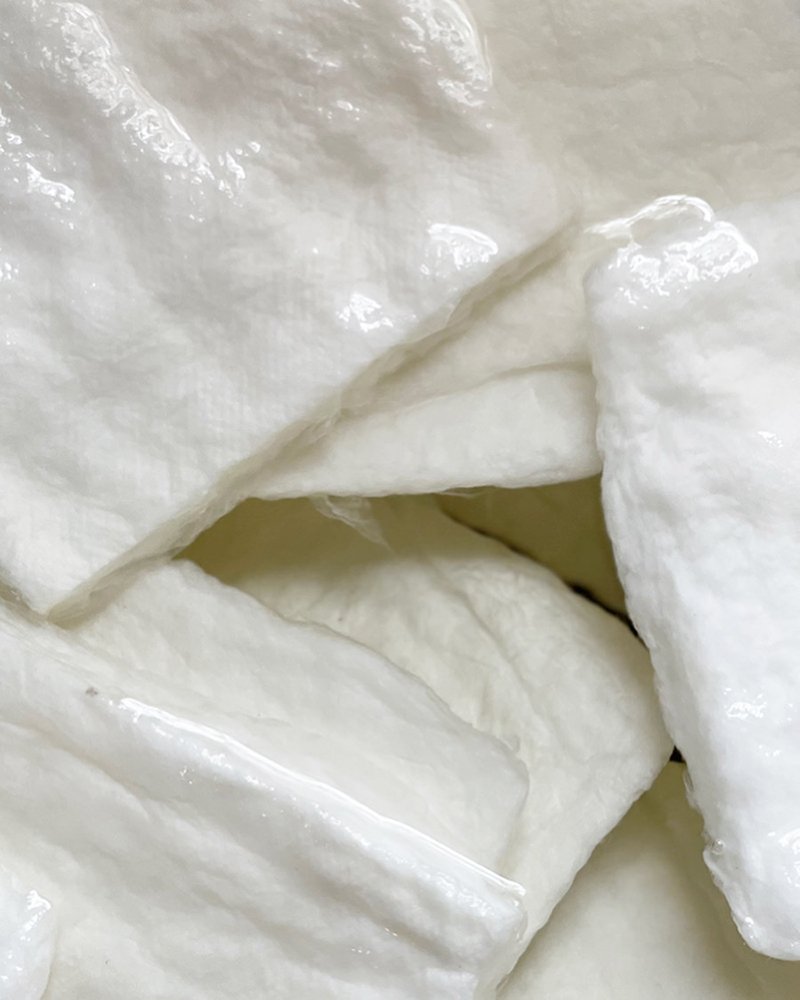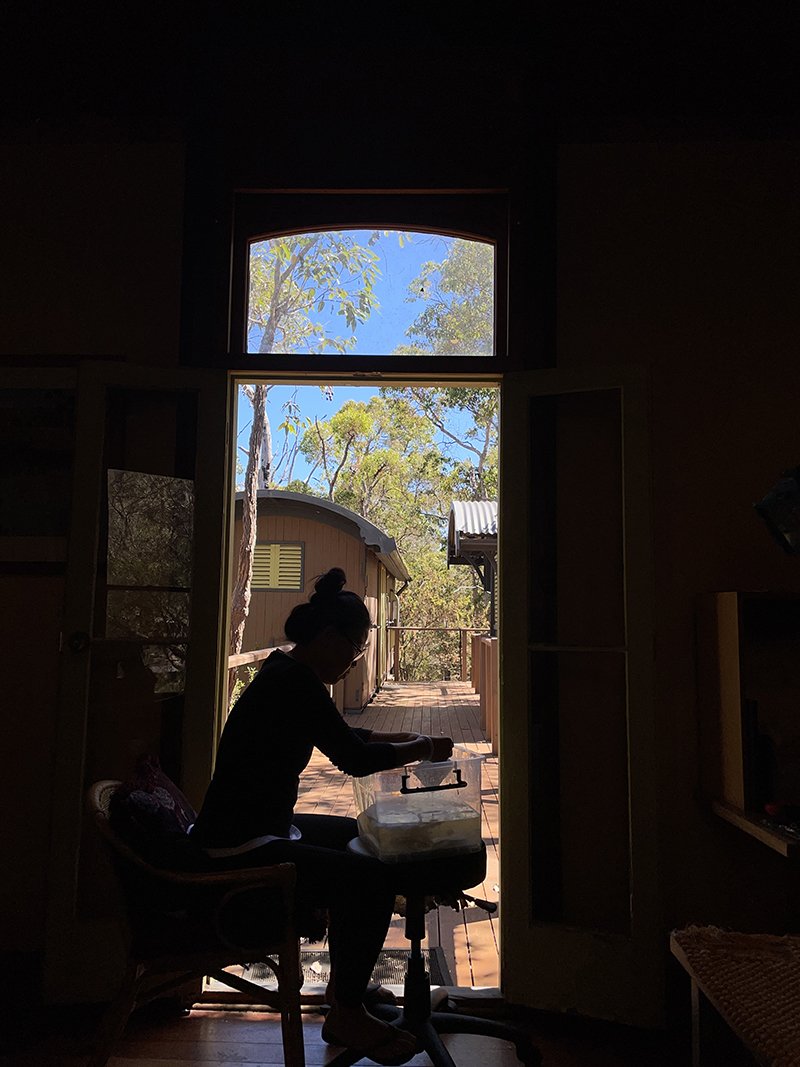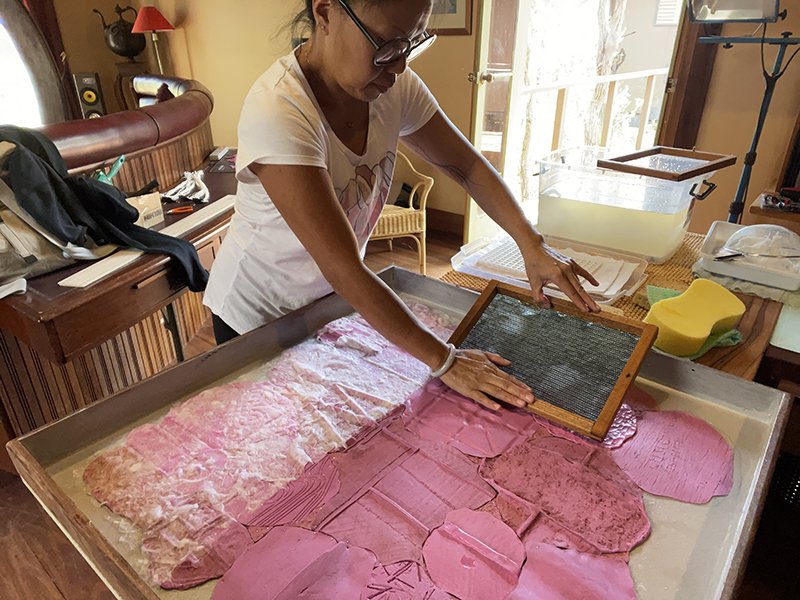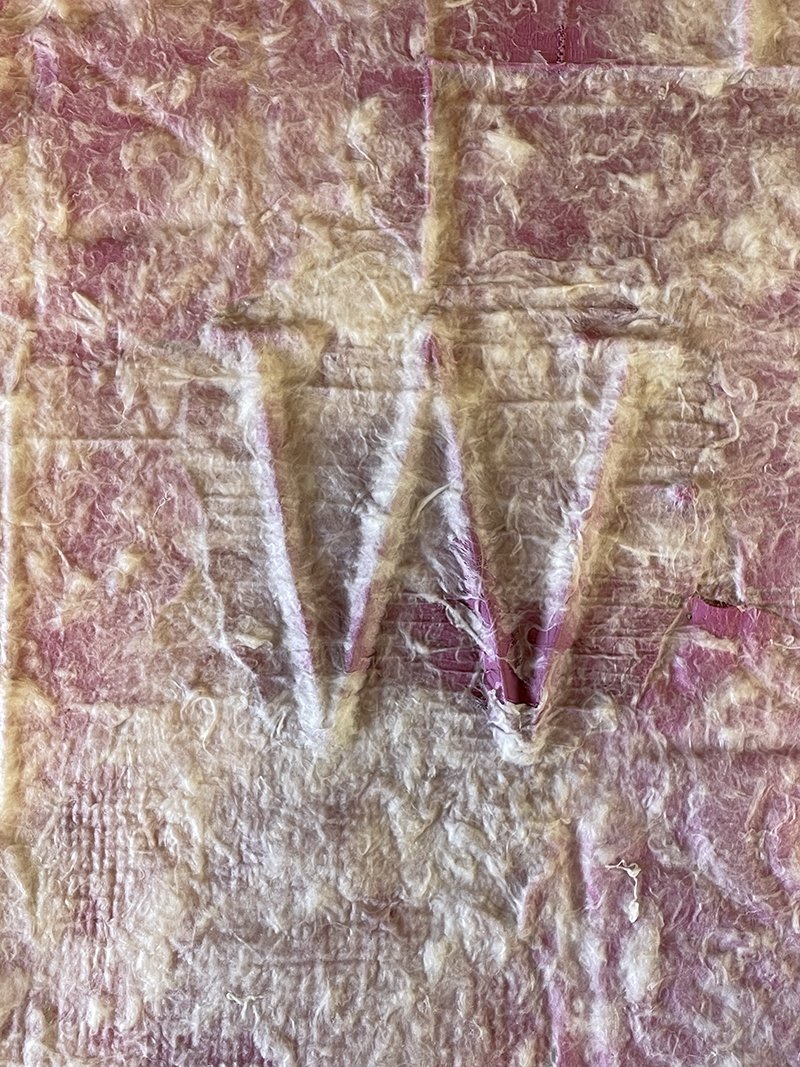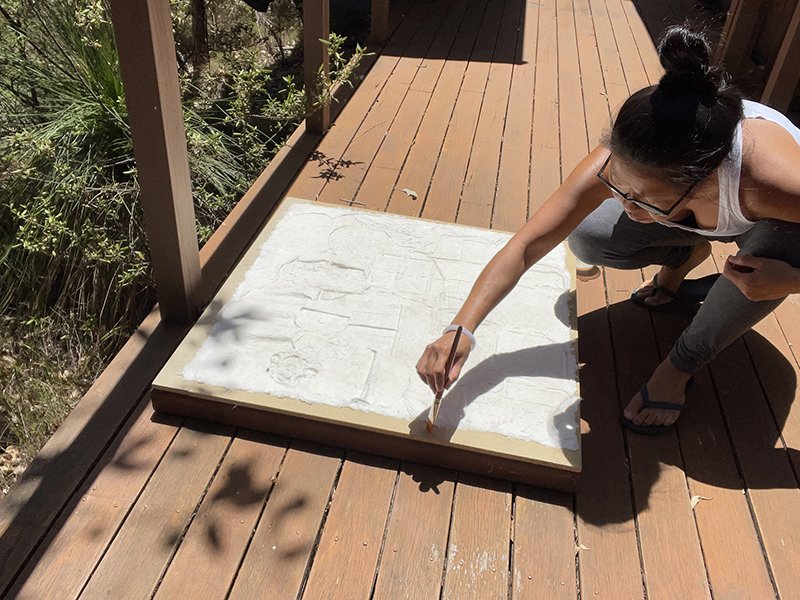Rural Utopias Residency: Jacky Cheng in Margaret River #6
Jacky Cheng is currently working with the community of Margaret River. This residency forms part of one of Spaced’s current programs, Rural Utopias.
Jacky Cheng is an artist and an art educator based in Broome, Western Australia. Cheng's work is fundamentally about identity and awareness through cultural activities and memories of home; country and relationships. Her significant concern are about correlating and weaving narratives from her native experiences whilst mapping the esoteric and social relationships of her origins and her new found home, environment and social surroundings.
Here, Jacky shares an update from Margaret River.
The process
Part of my research during stage 2 residency is also looking at extrapolating the idea of taking an impression from a surface and casting them with fibres to form a collection of impressions.
In the last blog entry, I briefly touched on the memory of textures and surfaces at The Witch and Windmill that serves as a point of interest in my quest to question the origin of construction materials. The unique tactile identity of the building is pertinent to the research. The everyday object or surface has an innate familiarity as we see them around us but may not necessarily be aware of its tangible surface until made aware of the texture. This highlights the un-familiarity that the everyday can present, within the confines of the familiar, and it is this juxtaposition that I find endlessly fascinating and a powerful way to question identity of materials around us. I reflect the same sentiment in regards to paper – an everyday humble material that is familiar in our lives and yet many is unfamiliar of its technical strength and malleability.
My preferred medium of choice in my practice is paper or fibres. In this project, I have chosen to work with kozo fibres due to its long strands that intertwine like a tangled net, naturally creating a strong and durable bond. My residency experience in Awagami Factory, Japan in 2019 elevated my knowledge and skill in working with this fibre - not proficiently, but only dare to say that I am equipped to formulae some stimulating ideas that presented interesting results in my practice.
I spent a few days soaking and breaking up the fibres in preparation for the casting process. Luckily there were other tasks at hand while waiting for the fibres to soften. My earliest memory of casting date back to my childhood with papier-mâché mask. It was a dreadful process then but I digress. There are some therapeutic qualities in spending hours mindlessly peeling away fibres ensuring each clump is separated and thoroughly soaked. Some of my former casting experiments were disasters from a result of impatience and inattentive to the nature of the fibre. Fortunately, the subsequent experiments were a hit!
Images:
Mould composition: attaching the mould to the board. Jacky Cheng, Redgate.
Preparing the kozo fibres: separating the kozo fibres in preparation for paper casting. Jacky Cheng, Redgate
Dry kozo fibres: soaking the dry kozo fibres. Jacky Cheng, Redgate.
Preparing the kozo fibres: Details of kozo fibres. Jacky Cheng, Redgate.
1st layer - Casting with kozo fibres: first test kozo paper cast from the silicone mould. Jacky Cheng, Redgate.
W - casting with kozo fibres: first layer of kozo paper on mould. Jacky Cheng, Redgate.
Drying the cast: wetting the edge of the paper – burnt from the heat from the sun. Jacky Cheng, Redgate.
